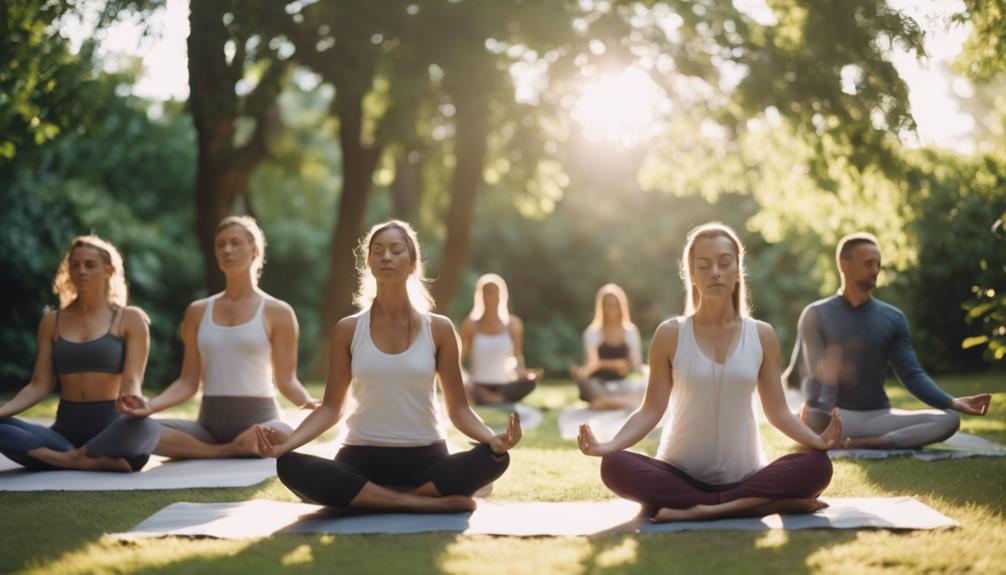Japan, a land rich in culture and natural beauty, offers a unique environment for yoga enthusiasts seeking a retreat. Combining ancient spiritual practices with serene landscapes, yoga retreats in Japan provide an opportunity for personal growth, relaxation, and rejuvenation. Whether you’re a seasoned yogi or a beginner, participating in a yoga retreat in Japan can be an enriching experience that connects you with both yourself and the surrounding environment.
This article explores the concept of yoga retreats in Japan, highlighting top destinations, benefits, types of retreats, and what to expect during your stay. It also includes essential tips on choosing the right retreat, packing, and understanding cultural etiquette, ensuring you have a fulfilling experience while immersing yourself in the serene beauty of Japan.
Understanding the Concept of Yoga Retreats in Japan
Yoga retreats in Japan blend the physical and spiritual dimensions of yoga with the tranquil environment that the country offers. These retreats often take place in peaceful locations, such as mountains, forests, or coastal areas, where the natural scenery enhances the mindfulness practices integral to yoga. The retreats typically span several days to weeks and involve a structured schedule of yoga classes, meditation sessions, and wellness activities.
In Japan, the concept of a yoga retreat also embraces traditional practices such as Zen meditation and mindfulness, allowing participants to explore not only physical postures but also mental clarity and emotional balance. This holistic approach creates a unique experience that encourages self-reflection and personal transformation, drawing on Japan’s deep-rooted cultural ties to nature and spirituality.
Top Destinations for Yoga Retreats Across Japan
Several regions in Japan are renowned for hosting exceptional yoga retreats, each offering its unique ambiance and natural beauty. One popular destination is the island of Bali, known for its stunning beaches and lush landscapes. Although Bali is technically not in Japan, many Japanese retreats draw inspiration from the island’s serene environment. In Japan itself, the hot springs of Hakone and the tranquil rural landscapes of Kamakura offer idyllic settings for yoga practitioners to immerse themselves in restorative practices.
Another notable destination is Kyoto, where ancient temples and serene gardens provide a peaceful backdrop for yoga and meditation. The lush, mountainous region of Nagano is also gaining popularity, offering retreats that capitalize on its pristine nature and fresh mountain air. These destinations not only provide yoga classes but also opportunities to explore cultural landmarks, enhancing the overall retreat experience.
Benefits of Attending a Yoga Retreat in Japan
Attending a yoga retreat in Japan offers numerous benefits that extend beyond the physical practice of yoga. The serene environment promotes relaxation and mindfulness, allowing participants to disconnect from the stresses of daily life and reconnect with themselves. The combination of yoga, meditation, and nature encourages mental clarity and emotional resilience, fostering a sense of inner peace.
Additionally, yoga retreats in Japan often include healthy, locally-sourced meals that cater to a variety of dietary preferences. This focus on nutrition complements the physical practice of yoga, supporting overall health and well-being. Participants often leave feeling rejuvenated, inspired, and equipped with tools to maintain their wellness journey long after the retreat ends.
Types of Yoga Retreats Available in Japan
Japan offers a diverse array of yoga retreats, catering to different interests and skill levels. Some retreats focus on specific styles of yoga, such as Hatha, Vinyasa, or Ashtanga, while others may incorporate various disciplines into their programs. For those seeking a holistic experience, retreats may also include workshops on mindfulness, meditation, and other wellness practices.
In addition to traditional yoga retreats, some programs are designed for specific goals, such as detoxification, spiritual awakening, or stress relief. There are even retreats tailored for beginners, providing a safe and supportive environment in which to learn the fundamentals of yoga. This variety allows participants to choose a retreat that aligns with their personal goals and interests.
What to Expect from a Typical Yoga Retreat Experience
A typical yoga retreat experience in Japan begins with an orientation session, where participants are introduced to the schedule, facilitators, and the retreat’s philosophy. Daily activities usually include multiple yoga sessions, meditation practice, and group discussions. Participants may also have opportunities for personal reflection, journaling, and relaxation amidst the stunning natural surroundings.
Retreats often incorporate additional activities such as hiking, traditional Japanese tea ceremonies, or cultural excursions to local temples and shrines. These experiences not only enrich the yoga practice but also allow participants to gain a deeper understanding of Japanese culture and spirituality. Overall, attendees can expect a well-rounded experience that nurtures both body and soul.
Choosing the Right Yoga Retreat for Your Needs
Selecting the right yoga retreat in Japan involves several considerations, including your yoga experience, personal goals, and preferred environment. It’s essential to research different retreats, examining their schedules, facilitators, and philosophies to ensure they align with your needs. Reading reviews from previous participants can also provide valuable insights into what to expect.
Additionally, consider the location and amenities offered by the retreat. Some may focus on luxury accommodations and gourmet meals, while others may emphasize simplicity and immersion in nature. By identifying the aspects that are most important to you—be it specific yoga styles, dietary needs, or extracurricular activities—you can make an informed choice that enhances your retreat experience.
Essential Packing Tips for Your Yoga Retreat in Japan
When preparing for a yoga retreat in Japan, packing efficiently is crucial. Essential items to bring include comfortable yoga attire, a reusable water bottle, and any personal yoga props you may require, such as a mat or blocks. Depending on the retreat’s location and activities, you may also want to include hiking gear, swimwear, or casual clothing for leisure time.
Don’t forget important personal items such as toiletries, medications, and a journal for reflection. Additionally, consider bringing a light jacket or shawl, as temperatures can vary in different regions of Japan. Lastly, having a universal travel adapter for your electronic devices will ensure you stay connected during your retreat.
The Role of Nature in Japanese Yoga Retreats
Nature plays a significant role in the experience of yoga retreats in Japan, as the country’s diverse landscapes provide an ideal backdrop for mindfulness practices. The Japanese concept of "Shinrin-yoku" or "forest bathing" emphasizes the therapeutic benefits of spending time in nature, promoting relaxation and a sense of well-being. Many retreats incorporate outdoor yoga sessions, allowing participants to connect with the natural surroundings while practicing their poses.
In addition to outdoor yoga, the incorporation of nature into the retreat experience often includes opportunities for guided hikes, meditation by serene lakes, or relaxation in hot springs. This connection to the environment deepens the overall experience and fosters a sense of harmony with the world around you, making the retreat a more enriching and transformative experience.
Cultural Etiquette to Observe During Your Retreat
Participating in a yoga retreat in Japan also means engaging with the local culture. Observing cultural etiquette is crucial to showing respect and enhancing your experience. A few fundamental practices include bowing as a sign of respect, using polite language, and being mindful of personal space. In communal settings, such as shared accommodations or dining areas, it’s essential to maintain cleanliness and be considerate of others.
When participating in traditional activities, such as tea ceremonies or temple visits, familiarize yourself with customs and practices. Understanding Japan’s emphasis on harmony and respect can enhance your interactions with fellow participants and facilitators, creating a more meaningful retreat experience.
How to Stay Connected After Your Yoga Retreat Experience
Maintaining connections after your yoga retreat in Japan can enrich your personal growth journey and foster lasting relationships. Many retreats offer social media groups or online forums where participants can share their experiences, insights, and progress. Engaging with these platforms can provide ongoing support and motivation, allowing you to continue your practice and connect with like-minded individuals.
Additionally, consider establishing a regular practice schedule or joining a local yoga studio to maintain the momentum you’ve gained during the retreat. You can also explore online classes or workshops that align with the teachings experienced during your retreat, further embedding the lessons learned into your daily life.
Embarking on a yoga retreat in Japan offers a transformative experience that blends personal growth with cultural immersion in a breathtaking natural setting. From understanding the various types of retreats available to navigating cultural etiquette, this journey can deepen your yoga practice while fostering connections with nature and fellow practitioners. By choosing the right retreat and preparing accordingly, you can ensure a fulfilling experience that resonates long after you return home.


